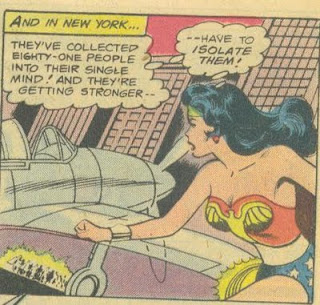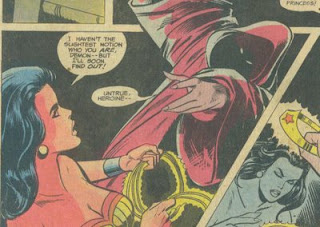 Join me today for the final section of "Inside the Blogging Studio with Bourgeois Nerd." If you are just tuning in, and surprised to find out that this blog has new content, do read Part I and II
Join me today for the final section of "Inside the Blogging Studio with Bourgeois Nerd." If you are just tuning in, and surprised to find out that this blog has new content, do read Part I and II***
Bourgeois Nerd (BN): What do you think your blog audience is? I get the impression that yours is much more diverse than mine. It’s harder to tell, since I don’t get the kind of comment feedback you do, but I’m definitely very much a gay man blog, whereas you have more women and straight people.
GayProf (GP): I have been really lucky that some mighty cool people have stopped by to read my blog. Some of the people that I have met (either virtually or in RL) through the blog have been absolutely the best (with just a few exceptions).
Over time, I think CoG’s readers have shifted a bit. Now that most of my posts tend to be about the academic world, my audience has predictably shifted to more professors and such. In the start, though, I had very few academics reading the blog. I think it depends on the content that you are producing. Your "Skimpy Sundays" probably draws a particular crowd of **ahem** fashionable men.
My truly loyal readers are my legions of fellow Amazons. Great Hera! What would I do without them?
BN: There is a very thriving academic blogosphere. It’s actually been around since I started reading blogs; academic blogs were among the first ones I read.
Are there any bloggers you wish you could be?
GP: You, darling, of course.
BN: Stop! You make me blush. (Go on!)
But, seriously, who do you admire? For me, there’s my big blog brother Scott, of course (and even if I knew he would beat me up if I didn’t include him, I’d still say that). There’s also Eric over at Sore Afraid. He writes the most beautiful, lyrical, dryly funny long-form pieces about his life and ruminations on language, gay culture, religion, and family. Plus, he’s hunky, smart, and well-traveled. Chris Sims is an incredible comics blogger; he makes me laugh almost every day; Joe Jervis and Andy Towle; and, of course, there’s you, my Amazon Sister! Who doesn’t want to be GayProf, though?

GP: You are wise to try and emulate me.
Gosh, if I have to start naming all the fantastic bloggers out there, I know that I will accidentally miss somebody. I have really enjoyed seeing Tenured Radical and Historiann develop a whole different dimension to their academic careers through their blogs. A few times in meetings, I have heard colleagues reference Tenured Radical on a particular issue. That suggests to me that her blogging has an impact. Like a Whisper and Angry Black Bitch are really great at thinking about questions of social justice in the news.
Tornwordo, VUBOQ, and Someoninatree are some of the more personal blogs that I still keep up with as much as I can. Dorian at Postmodern Barney remains the undisputed queen of gay comic bloggers, I am pretty sure. Down and Out in Denver is a newer blog that has some sly wit.
All these many years later, I still, still, still miss the Ninth Circle of Helen. She was fabulous.

See? It’s just too hard to narrow down the list because there are so many people out there rocking the blogosphere.
BN: You once commented that you could be “nostalgic for what I had for breakfast this morning.” Light-hearted self-deprecating hyperbole that it is, I actually really identify with that statement, because I sometimes feel I’m one big walking pit of nostalgia. I’m nostalgic for things I didn’t experience or was even alive for. Do you think nostalgia is intrinsic to nerdiness? Do you think this inclination had something to do you’re your becoming a historian?
GP: Breakfast this morning was so great. The coffee was just the right temperature. I had a banana that was perfectly ripe. Such a breakfast will never happen again. **Sigh**.

Actually, I think becoming a professional historian is a good cure for romanticizing the past. I mean, I don’t really want to go back to an era where my sexuality would have resulted in my being sent to jail or given electroshock therapy.
BN: This extreme nostalgia is one of the reasons I’m obsessed with memory, why I find books so important. To lose memory is to lose a world. Books are the only way to capture an individual’s thoughts and feelings and point of view, even if only in a limited, edited way. You’re in the business of reconstructing memory. When you’re working on NERPoDs, do you feel like you’re resurrecting people and times? Do you regret that you can only do pale shadows, because you’re limited to what was written and recorded?
GP: I think NERPoD and NERPoD: The Sequel are both creating a type of memory more than they are recovering memories. It seems to me that making arguments about the past helps us to think about our modern concerns. So, even though I am writing history, it is always a product of the present.
In terms of the actual (now dead) people, I would like to think that they would see themselves in the things that I write. They were people who were trying to figure out how to deal with race and racism in a remarkably hostile nation. I doubt that they imagined any historian would really care about their lives 150 years later. Their goals were more immediate: How do I feed my folk when ravenous Texans keep snatching my land away from me?
BN: Do you ever feel like a “bad gay”? I feel like I’m “missing” certain things. Yes, yes, yes, gay life isn’t and shouldn’t be nothing but a sea of hedonism, parties and sex and debauchery. This is stereotype, and not how all, or even most of us, live, or should live. But, you know, I wouldn’t mind some hedonism.

GP: Don’t dream it, be it!
I feel like I’m a great gay! Though, more sex with other gay men is always welcome.
BN: I think gay people should be able to be who they are, whether it’s a screaming queen or a boring-ass suburban like me. It’s good we’ve moved away from stereotypes. But I feel we’ve thrown the baby out with the bath water. Suburban conformity shouldn’t be a goal, simply a choice. And the whole fetishizing of “straight-acting” and “masculinity” is maddening, especially when it turns on those who do conform to old stereotypes. There are people out there who are genuinely effeminate: there are show queens, there are drag queens, there are queens who just love Ethel Merman and Cher, and they’re just as much a part of this community as any gay couple with 2.3 adopted children and two SUVs in the driveway. To deny them is folly. Straight people aren’t going to accept us if we purge ourselves of the “bad” images and act like good little drones; many straight people will never accept us at all. If we are accepted, it must be for all of us, not just those who can “pass.”
 GP: After all these many years, we still haven’t learned the lessons in the sacred text Free to Be You and Me. A hungry nation calls out, “Marlo Thomas, where are you in our hour of need?”
GP: After all these many years, we still haven’t learned the lessons in the sacred text Free to Be You and Me. A hungry nation calls out, “Marlo Thomas, where are you in our hour of need?”It seems to me that the whole nation has taken a slow veer towards the conservative side. The queer community isn’t alone in valorizing the nuclear family. Over the past decade, I have been saddened by the number of straight people I have met who unquestioningly adopt some pretty retrograde gender notions in their marriages and families. During the 1990s, it felt like there were more people critiquing assumptions about relationships and being quite critical of narrow ideas about "family."
Nowadays the nuclear family has become a type of competitive sport. Middle-class folk are on a mission to raise the “perfect, genius, super special” children. It disheartens me that people define their identity through these types of familial relationships.

I am also disappointed that the gay marriage debate hasn’t prompted a wider discussion about whether “traditional” marriage is really working for the majority of people. Given the ever escalating divorce rate, I would sorta think it isn’t.
It seems to me that queer folk are actually quite involved in negotiating the terms of their relationships that are markedly different than their hetero counterparts. Many gay men, for instance, openly reject monogamy as a hallmark of a stable relationship. That discussion, though, gets lost in the effort to make sure that everybody imagines that gay relationships are “the same as” straight relationships.

This is a strategy that most civil rights groups adopt at some point or another. Certainly some members of the African American community at the turn of the twentieth century or members of the Latino community in the 1940s and 1950s openly advocated for an adoption of “middle class" values and practices as a means to obtain equality in the nation. So too are some gay men and lesbians putting out the idea that if everybody was the same, then we wouldn’t be different
It’s not that I oppose gay marriage. For some people, that type of relationship really is the best suited for their personality. We also have to fight the fight given it was handed to us by the radical right. Maybe, though, my own experience has made me more skeptical about marriage’s overall value and durability. I always say, the best thing about legalizing gay marriage would be gay divorce.

BN: You said it, GayProf! I’m a product of a rather traditional middle-class upbringing, and I’m more than proud of it, but it should be an option, not a diktat. I think it’s great that many gay couples negotiate non-monogamous relationships, and hate when other gay people especially tut-tut such things.
Well, I think this blog conversation has run its course. I must say, I enjoyed it immensely! We definitely have to do it again.
GP: It has been my pleasure. Now, let's break out the cocktail shaker and dance, dance, dance.













































